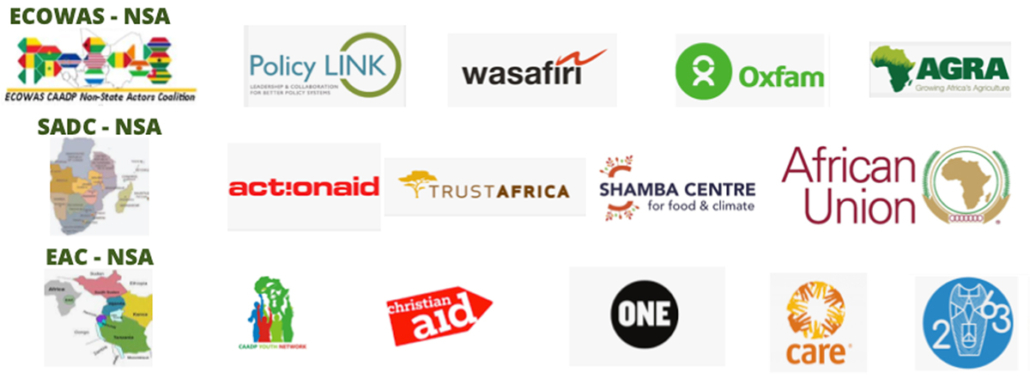Transforming African agri-food systems by advancing policymaker accountability
Ruthpearl Ng’ang’a
Latest posts
Share:
How important are parliamentarians at the country level when it comes to transforming agri-food systems across Africa?
In 2022, parliamentarians provided an important glimpse of new forms of accountability that they can bring to influence national performance on food systems. Their role can grow in 2023 if harnessed well to support Africa to achieve its own Malabo targets that include ending hunger and transforming agriculture in the 2020s.
Let’s first focus on what really matters to ordinary people. Between just January and September 2022, food price inflation in Ghana increased by up to 122%.
According to Ghana parliamentarian Hon. Dr. Godfred Seidu Jasaw, who is on the committee on Food, Agriculture, and Cocoa Affairs, “it means we cannot sustain any agricultural progress. We are still doing under 2% of our 15% Malabo commitment, and even in the 2023 budgets that we are just reviewing, it is likely to be no different. The capacity to have compelling evidence and information to influence these budget lines and policy focus will be very useful.”
Hon. Jasaw was speaking at a session that included the Chairs of parliamentary committees of agriculture from Ghana, Kenya, Malawi, the Republic of Congo, and Nigeria.
The African Union’s CAADP Biennial Review is the most authoritative data, analytical report production and approval process covering agri-food systems on the continent. Over 50 countries report on their progress against the AU’s Malabo targets, yet many stakeholders in national governments or outside (who are important decision makers or influencers on policy, resourcing, and implementation), are unfamiliar with the BR process and findings.
Evidence from the BR shows that Africa’s agricultural growth and transformation have been faltering since 2015, and it provides evidence that existing efforts are not sufficient to get Africa back on track to meet its goals.
So far, country parliamentarians have not been a focus of the Biennial Review. However, it is clear that they are interested and ready for mutual accountability learning from their parliamentarian peers in-country and between countries, using the BR report.
As Hon. Jasaw expounds, “I’ve been very interested [in the Biennial Review] but I realise that there’s just no system in place to make such information available to us. And so I think that we should take the extra step of targeting who gets this report. The first priority must be given to the users of that report – the parliamentarians and policymakers, and then the technocrats at the ministry. Once we target these people consciously and they are reading and discussing the Biennial Review report, they may be able to lead others in applying the policy lessons and we may actually reach the lofty Malabo objectives and agenda that we have so far.”
So data matters and so does who receives it. But politics and coherent action by institutions must follow.
“When we want to address agriculture, we must think about strengthening production, industrialisation, and trade at the same time. All the difficulties are related to the climate, deforestation, pollution, COVID-19, purchasing power, and also the need to involve our political institutions. What we need is more coherence, not only between the information available but also across the different stakeholders involved,” explained Hon. Jeremy Lissouba, committee of agriculture, National Assembly of Congo.
The novel session at the end of November provided an opportunity for parliamentarians to make the case for an enhanced role for African country parliaments in the CAADP process: to formally receive and consider the BR data and to apply it in practice deepening accountability for performance with national governments and implementers.
Momentum and relationships have been co-created by a group of Non-State-Actors and the AU Commission. Energy is building to empower parliamentarians across Africa, particularly those in agriculture select committees with timely information from the BR in order for them to support better decisions by government and other stakeholders.
The opportunity is real. Parliamentarians can constitute a new, connected, and influential network that is using the BR findings in a majority of African countries to hold governments accountable, and in so doing, help to improve national agri-food performance.
The next step is a conference open to all country parliamentary committees of agriculture, finance, and planning in February 2023 before the AU Summit.
We are just three years away from the Malabo declaration targets deadline, yet Africa is way off track. It matters now more than ever, that the BR evidence is used in practical ways to boost trade in food, grow production of food in sustainable ways, improve nutrition outcomes for women and children, invest more public and private financial resources – and many other areas that are covered by the BR report.
Parliamentarians are mandated to hold the national government accountable. Let us help them do this using the latest data to shape national food systems. 2023 offers an opportunity to break through!
If you’d like to connect on this agenda and particularly if you are a member of an agriculture, budget/finance, or planning committee, please reach out to Ruthpearl.Nganga@wasafirihub.com.









